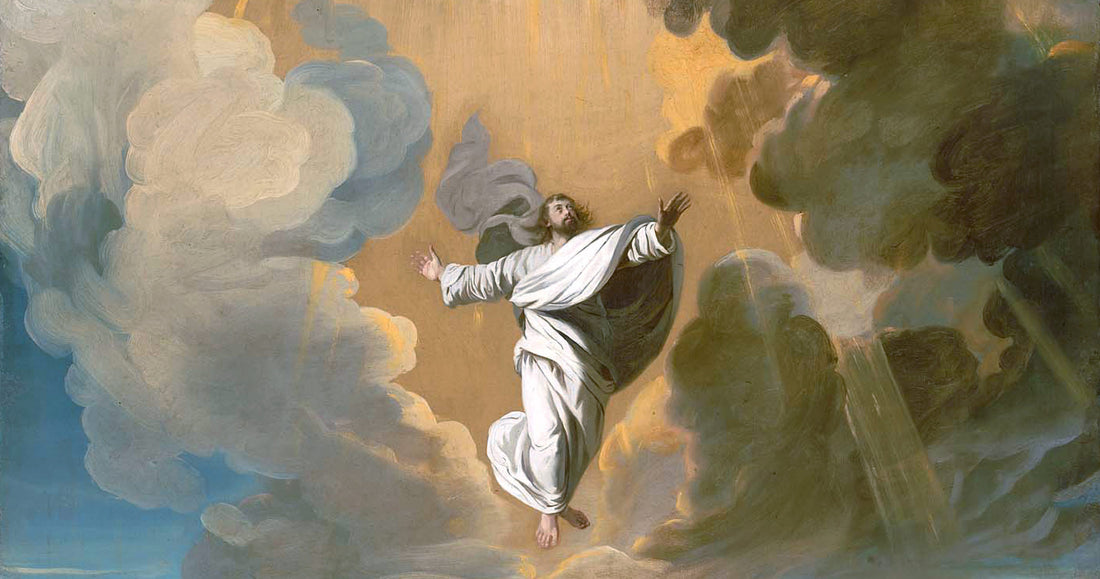
How Can Jesus Be Fully God And Fully Man?
Deacon John HardenIt’s one of the greatest, if not the greatest mystery of our Faith, that Jesus is fully God and fully man. We profess this belief in the Nicene Creed. But does Sacred Scripture really claim that Jesus is God Incarnate? Where does the Bible say that Jesus “the Only Begotten Son of God, born of the Father before all ages … came down from heaven, and became man?” Well, it doesn’t say it in those exact words, but the Bible does affirm that Jesus is God Incarnate.
Consider these words from the Gospel of John:
“In the beginning was the Word, and the Word was with God, and the Word was God … And the Word became flesh and dwelt among us, full of grace and truth; we have beheld his glory, glory as of the only-begotten Son from the Father … grace and truth came through Jesus Christ … the only-begotten Son.”
John 1:1, 14, 17-18
Jesus’s own words reveal this when he later speaks to his detractors, saying:
“If you were Abraham’s children, you would do what Abraham did, but now you seek to kill me, a man who has told you the truth which I heard from God … Truly, truly, I say to you, before Abraham was, I AM.”
John 8:39-40, 58
After saying this, his detractors “took up stones to throw at him.” They considered his words blasphemous. For Jesus was claiming that even though he is “a man” —who could even be killed—he pre-exists Abraham. What is more, he takes God’s Holy Name, “I AM,” for himself (see Exodus 3:14). Later in John’s Gospel, Jesus once again says to those who came to arrest him, “I AM he,” and “when he said to them, ‘I AM he,’ they drew back and fell to the ground” (see John 18:5).
Would you like to learn about who Jesus is, what he is really like, what he taught, what he did for our salvation, and what this means for us as Catholics today?
Sign up for a free preview of the Jesus: The Way, the Truth, and the Life study program here!
The Necessity of the Incarnation
There are many more passages that speak of Jesus’ divinity and humanity. Indeed, John speaks of how “every spirit which confesses that Jesus Christ has come in the flesh is of God, and every spirit which does not confess Jesus is not of God” (1 John 4:2-3). So belief in the Incarnation is essential to our Faith. But why? Why is it so essential for us that God became man?
The Catechism, drawing from Sacred Scripture, provides four reasons for why God became man for us (see Catechism of the Catholic Church, 457-460):
- To redeem mankind, to “take away the sin of the world!” (John 1:29)
- To reveal how much he loves us. “For God so loved the world that he gave his only-begotten Son, that whoever believes in him should not perish but have eternal life” (John 3:16)
- To show us how to live in this life, so that we can have eternal life. “I am the way, and the truth, and the life; no one comes to the Father, but by me” (John 14:6)
- To give us the “power to become children of God” (John 1:12) through the grace of the sacraments. “See what love the Father has given us, that we should be called children of God; and so we are” (1 John 3:1).
God became man not just to save you, but to enable you to “become a partaker in the divine nature” (see 2 Peter 1:4). Jesus, who is God’s son by his very nature, by becoming man, has enabled you to be a child of God by grace. Through baptism, God “sent the Spirit of his Son into your heart, crying, ‘Abba! Father!’” (Galatians 4:6). Alleluia!
Does knowing that you are a child of God change how you live your daily life? How will you demonstrate God’s love in your life to others today?
If you really want to explore who Jesus is, what he is really like, and what this means for us as Catholics today, sign up for a free preview from the Jesus: The Way, the Truth, and the Life study program here!
You May Also Like:
Jesus: The Way the Truth, and the Life
Consecration to Jesus through Mary
Jesus is King with St. José Luis Sánchez del Río and Blessed Miguel Pro
Follow Me: Meeting Jesus in the Gospel of John
Subdeacon John Harden is a senior product manager at Ascension and has served as an adjunct professor of theology at Neumann University in Aston, Pennsylvania. He has a bachelor’s degree in theology from Benedictine College in Atchison, Kansas, and a master’s degree in theology from Franciscan University in Steubenville, Ohio. He, his wife, and their children live in West Chester, Pennsylvania.
This article was first posted on The Great Adventure Blog, Ascension Blog’s former home, on January 6, 2015. To learn more about The Great Adventure Bible study click below.
Featured painting, The Ascension (1775), by John Singleton Copley, sourced from Wikimedia Commons